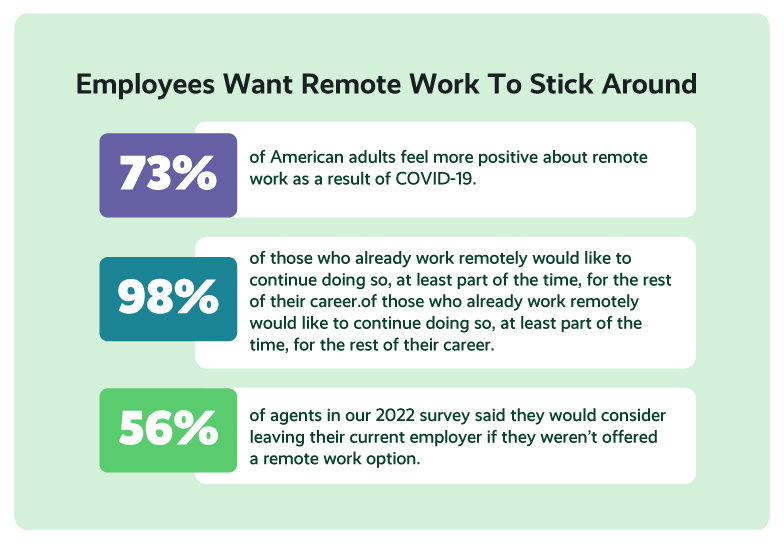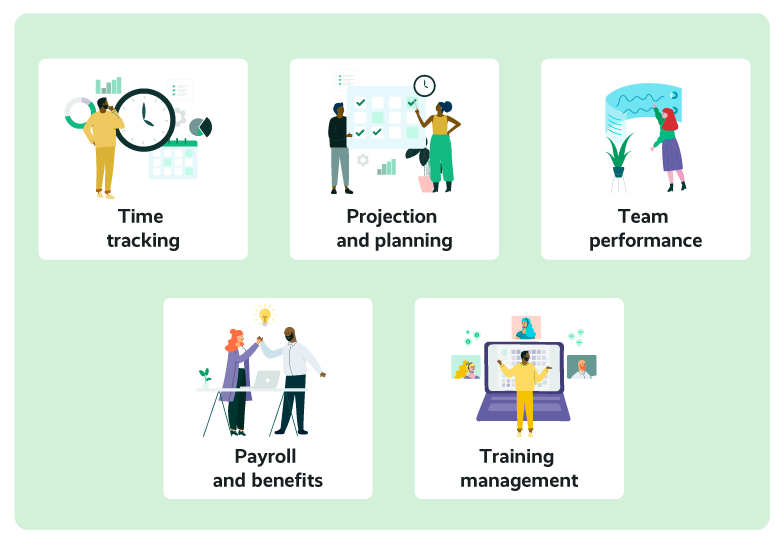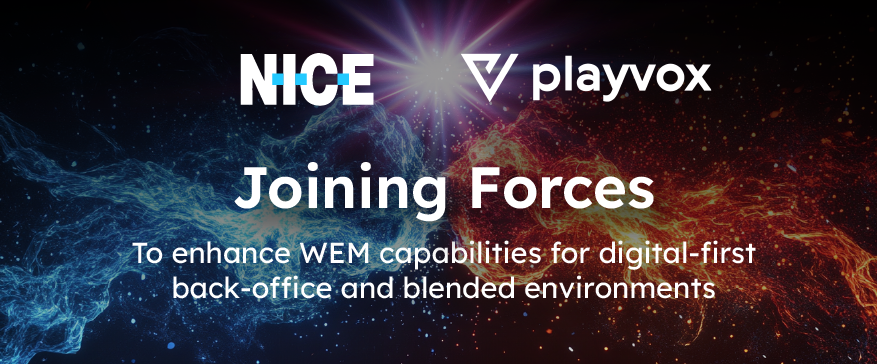The Impact Of Remote Work On Workforce Management
As a result of the COVID-19 pandemic, many companies have opted for remote work. In the midst of “quiet quitting” and continued low unemployment, contact centers are leveraging remote work as a way to attract team members.
The contact centers that offer this flexibility for their workforce realized that their remote workers could have the same performance and productivity they do in an office — if they implement practices for efficient work.
Remote work offers a multitude of benefits for both an organization and the individual team member. For example, a customer support center might enjoy lower costs when they don’t have to support a physical location, while agents might have higher productivity since they no longer need to spend time and energy commuting to and from an office.
There are also disadvantages of this type of work for certain collaborators, including mental health. The World Health Organization warns:
“…without proper planning, organization, and health and safety support the impact of teleworking on the physical and mental health and social wellbeing of workers can be significant.
It can lead to isolation, burnout, depression, domestic violence, musculoskeletal and other injuries, eye strain, an increase in smoking and alcohol consumption, prolonged sitting and screen time, and unhealthy weight gain.”

Create A Company Culture Based On Trust And Autonomy Of Workers
When working asynchronously, trust is essential between remote workers and managers. When you’re able to “walk the floor” in physical offices, you can observe what an employee is — and is not — doing.
But with remote work, you can’t fully control what an employee does. You instead have to provide autonomy for remote workers. The person who leads these teams plays a fundamental role in the management and work of all the teams. For all agents to do their respective work and optimize time effectively, remote managers must establish clear objectives and delivery times.
When there is total confidence in the team, it is easier for agents to work from anywhere they like — provided it meets the requirements of your remote work policy.

To truly create an environment of trust, a contact center leader needs to know how to delegate responsibilities, be able to track agents’ progress with key performance indicators, and be available to guide agents when needed. To make remote work a success, your team needs autonomy, regular check-ins, coaching, and a sense of purpose.
Related Article: 5 Ways Contact Center Managers are Adapting to Remote Work
Why Is Autonomy At Work An Effective Foundation?
The autonomy that comes with remote work lets agents demonstrate their commitment to the team and to their own success by delivering the results you expect of them. They have a lot at stake when operating with autonomy, including demonstrating their:
- Reliability
- Credibility
- Ability
- Time management
If a remote worker has more autonomy in their work, they will feel less pressure, perceive themselves as more useful to the company, and gain more confidence to suggest new ideas and take on new responsibilities. This is what true agent engagement looks like — and engaged agents are less susceptible to burnout.
Related Article: Boosting Employee Engagement: 6 Tips for Keeping Contact Center Agents Motivated
Building Strong Professional Relationships In A Remote Work Environment
As more people work from home, building and maintaining strong professional relationships has become more challenging. There are several key components that influence a good professional relationship in a remote environment.
Effective Communication
Communication is crucial to building and maintaining strong relationships in a remote team, and good communication builds trust and collaboration.
To be effective, it’s necessary to have regular check-ins and clear channels to use for different types of communication. For instance, you might use Slack for quick questions and updates and a community wall for sharing public praise and announcements — and for agents to collaborate.
Regular Hours
Remote work offers great flexibility, and this can make coordinating schedules difficult. It’s important to set and stick to schedules to ensure all team members will be available in that time slot.
Celebrate Achievements
In a remote work environment, it’s easy to overlook the accomplishments or successes of the team. It is important to celebrate and recognize the work of each team member when you can. This will help your team stay motivated and know you value their contribution to the company.
An Engaged Worker Makes A Productive Team
When you cultivate an engaging company culture, people collaborate more at work and absenteeism is lower. In fact, Gallup reports that highly engaged teams see an 81% improvement in absenteeism.
It is true that there are various factors that make an employee more engaged and connected with their company — and that can have a big impact on your bottom line. Did you know that having engaged employees directly affects company profits and annual results?
A 2021 study by Salesforce and Forbes shows that companies with both high employee experience and high customer experience scores see almost double the revenue growth as those that do not.
Productivity in a work team is one of the most important aspects of a successful agent no matter where they work. With workforce management, it is possible to plan and forecast the volume of work and organize the workforce for maximum productivity and efficiency. When workforce development happens right, productivity will increase, and with it comes the success of the business.
Related Article: Can Your WFM Solution Accurately Forecast In A Modern Digital Contact Center?
Indispensable Factors For A Workforce Management System
It’s also important to note that workforce management tasks often closely resemble those of human capital management (HCM), which is a framework for recruiting, managing, and developing employee value.
The main difference between the two is that human capital management aims to maximize ROI while workforce management aims to maximize employee performance and productivity.

Time Tracking
Monitoring how agents spend their time on various work activities during remote work is useful for analyzing efficiency. You can also identify different patterns such as tracking workload, having an adequate number of team members, and delegating tasks in the right way. You can monitor and coach agents to improve their time management skills for a more productive daily routine.
Projection and Planning
Through efficient capacity planning and forecasting with the right workforce management solution, you can create schedules for your agents that offer a positive work-life balance — a surefire way to boost agent engagement.
Team Performance
To understand the productivity, performance, and general engagement of your contact center team, you need the right performance management solution. Using one is essential to gauging customer satisfaction based on the results delivered.
Payroll And Benefits
Payments and benefits are necessary for a team to be motivated and dedicated to their tasks, such as the timely payment of their payroll or an additional incentive that the company offers.
Training Management
The creation of a training program for remote employees is fundamental and essential for them to have personal and professional growth when educating themselves in various aspects.
Empowered Agents Are Happier Agents
In short, when a remote worker has benefits that allow them to feel good and be well, their work will be much more productive and efficient. In order to adequately evaluate the performance of the team and ensure people have autonomy, you have to find an effective method to be able to measure it. The Playvox suite of solutions is designed for just that. Contact us to get a demo and see how it can empower your remote employees and managers.







